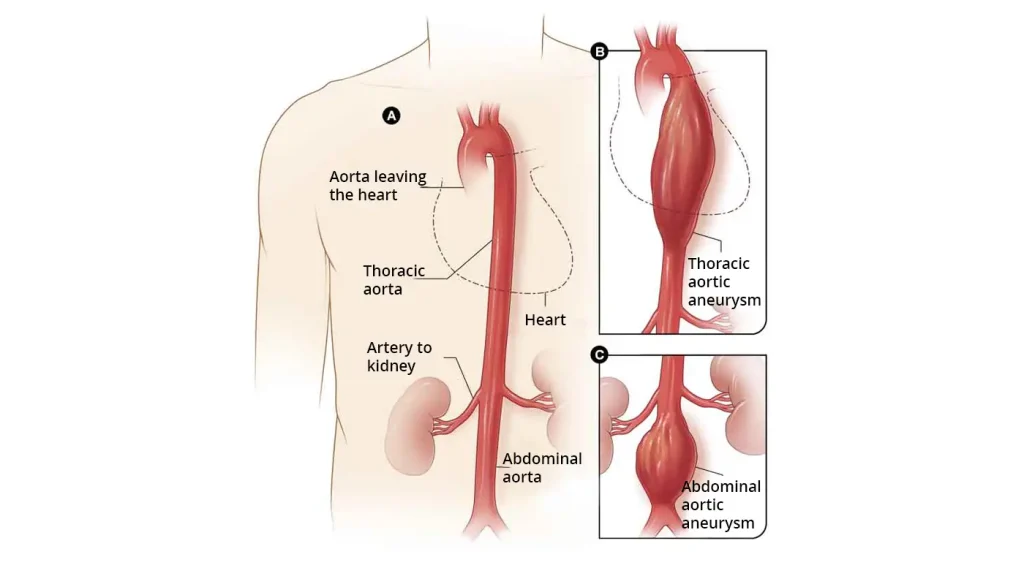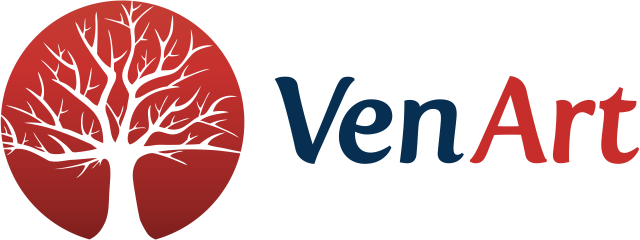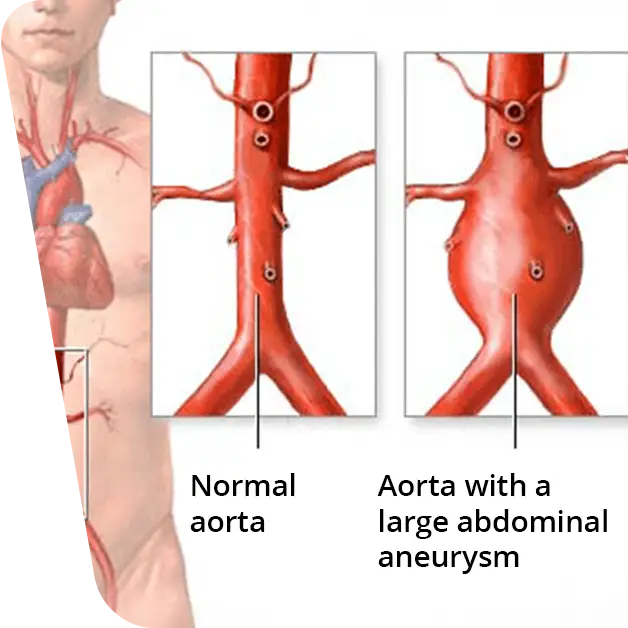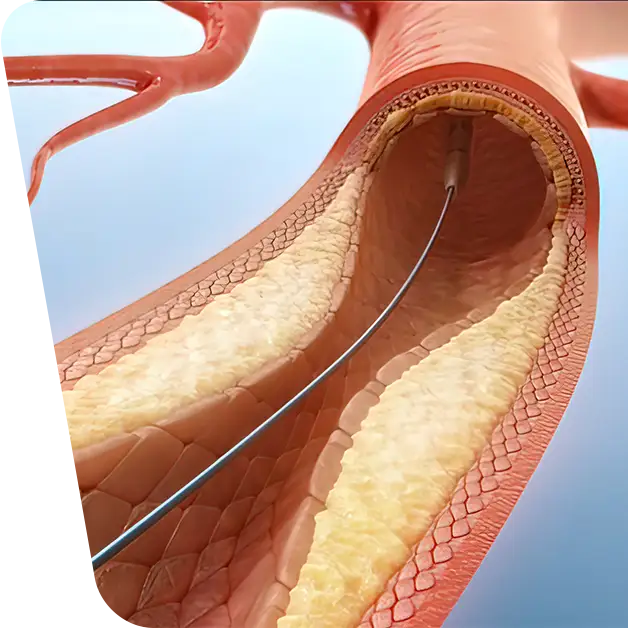What is an aortic aneurysm?
Every cell, tissue and organ in our body requires a constant supply of oxygen and nutrients to function properly. These substances are supplied by blood, and the main conduit that carries blood from the heart to most organs is the aorta. Unfortunately, under certain conditions, the aorta can develop an abnormal dilatation called an aortic aneurysm.
An aortic aneurysm refers to a dilation or widening of part of the aorta that becomes larger than its normal size. It can affect any section of the aorta, but the most common types are ascending aortic aneurysm and abdominal aortic aneurysm.
Types of aortic aneurysms
The aorta, the essential artery that supplies oxygenated blood to the entire body, can be susceptible to certain conditions that affect its integrity and functionality. One of the most serious conditions is an aneurysm, which can occur in different sections of the aorta. Each type of aneurysm has specific features and risks, requiring different approaches to diagnosis and treatment.

Ascending aortic aneurysm
This type of aneurysm develops in the portion of the aorta that leaves the heart. If it ruptures, the risk of death is extremely high, which is why detection and treatment are crucial.
Abdominal aortic aneurysm
Located below the diaphragm, in the portion of the aorta that passes through the abdomen, this type of aneurysm is the most common. Symptoms of abdominal aortic aneurysm may be subtle or even non-existent until the situation becomes serious.
Aneurysm in the chest area
An aneurysm that forms in the upper section of the aorta, in the chest, is known as a thoracic aneurysm. This area is close to the heart and crosses the chest cavity. Symptoms of this type of aneurysm can be like other heart conditions, including chest or back pain.
A detailed look at abdominal aortic aneurysm
The abdominal aorta is the segment of the aorta located below the diaphragm, with the essential role of supplying oxygenated blood to the abdominal organs and lower limbs. But sometimes complications can occur, such as abdominal aortic aneurysm, which is an abnormal dilatation of this part of the aorta. This medical condition, if not detected and treated early, can have serious consequences.
Symptoms associated with abdominal aortic aneurysm
When it comes to the symptoms of abdominal aortic aneurysm, they can range from absent or very subtle, to obvious and severe manifestations. Some patients may experience a throbbing sensation in the abdomen, pain or discomfort, while others may have no symptoms until the aneurysm reaches an advanced stage.
Cost of abdominal aortic aneurysm surgery
Surgical approach is often necessary in cases of significant or rapidly growing aneurysms. In terms of the price of surgery, costs can vary depending on the complexity of the procedure, the medical team and the clinic’s facilities. Contact us for the best price!
Symptoms and warning signs
One thing should be clearly mentioned: symptoms may be non-existent until the aneurysm becomes critical.
However, when it does manifest, symptoms of abdominal aortic aneurysm may include a throbbing sensation in the abdomen, pain in the back or flank, and abdominal discomfort. For ascending aortic aneurysm, symptoms may include chest pain, shortness of breath or persistent coughing.
Treatment and intervention
Treatment for an aneurysm depends on its size and rate of growth. In the case of a small, slow-growing aneurysm, regular medical monitoring is sufficient. But for large or fast-growing aneurysms, surgery becomes necessary.
At VenArt Clinic, we offer specialized services for the diagnosis and treatment of aortic aneurysms. With our top-notch experts, you can rest assured that you’re getting the best care, whether you need ascending aortic aneurysm surgery or abdominal aortic aneurysm treatment. Plus, we offer transparency on costs, so if you want to know details like abdominal aortic aneurysm surgery, our team is here to assist you.
Conclusion
Aortic aneurysm, whether we are talking about ascending aortic aneurysm or abdominal aortic aneurysm, requires specialized attention and care. It is vital to recognize the signs and seek specialist care to receive appropriate treatment.
At VenArt Clinic we provide our patients with the most advanced aortic aneurysm care so you can live a long and healthy life.






